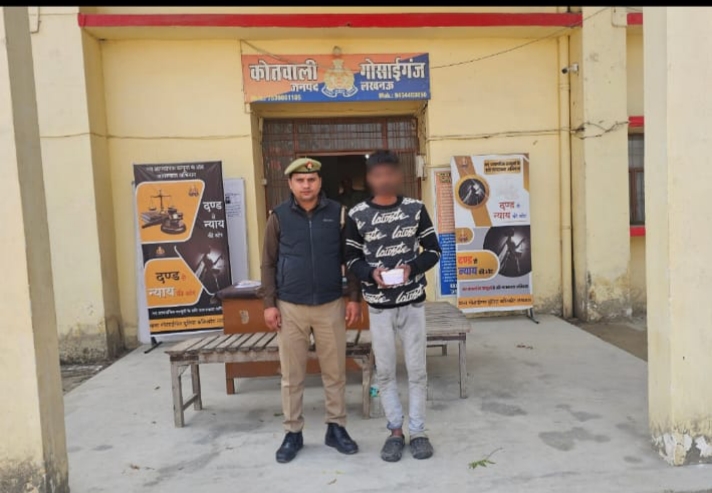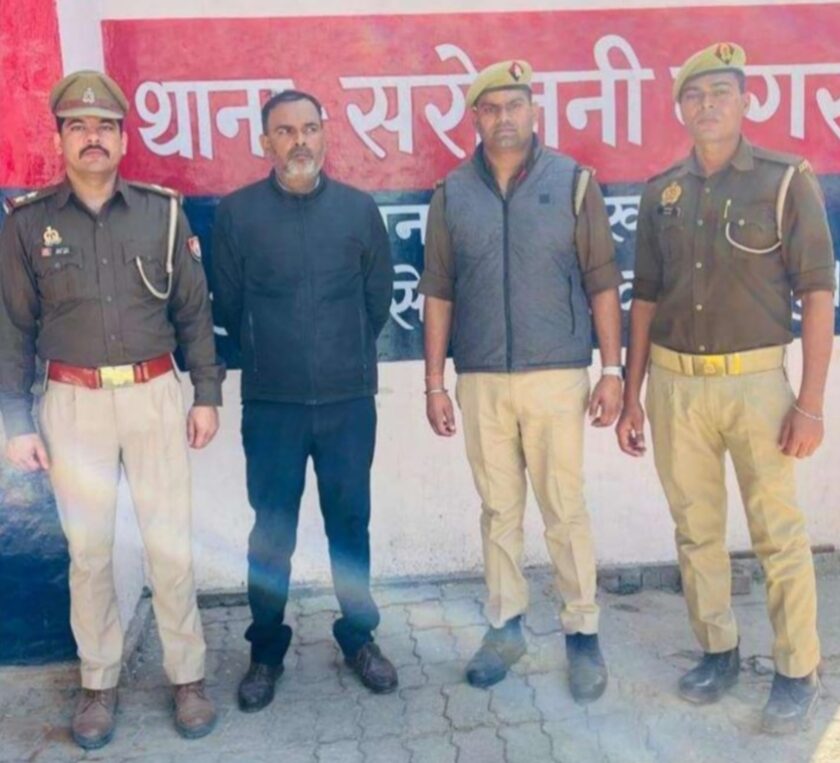Lucknow, Uttar Pradesh – In a major push to enhance digital security and combat cybercrime, Uttar Pradesh Director General of Police (DGP) Rajiv Krishna inaugurated a new, state-of-the-art call center for the National Cybercrime Helpline 1930. The 24/7 center, located at the DCP South office in Kalli Paschim, is a key part of the government’s strategy to provide immediate assistance to victims of cyber financial fraud.
DGP Krishna, who was joined by ADG Cyber Crime Binod Kumar Singh, stated that the initiative is a top priority for the state government, which views cybercrime as a serious threat to internal security and citizen privacy.
Expanding the 1930 Helpline to Tackle Rising Cybercrime
With an existing 20-seat call center already operational at the UP 112 headquarters, the Cybercrime Headquarters has now established a new, 30-seat call center to address the growing number of complaints. This center is designed to offer immediate support to victims of financial cyber fraud.
The new call center will operate round-the-clock with a team of 94 trained police personnel, from constable to inspector level, and 50 dedicated callers available at all times to register complaints. These complaints will be instantly visible to the I4C, Cybercrime Headquarters, district/commissionerate cyber cells, and local police stations, ensuring swift action.
A proposal to launch a Cyber Fraud Mitigation Centre (CFMC), similar to the I4C, is also underway. This center will operate with the cooperation of banks, bringing police, bank, and telecom personnel together under one roof to provide comprehensive assistance to victims.
Key Policy Decisions to Strengthen Cybercrime Prevention
The government has also implemented several crucial policy changes to effectively handle cybercrime:

- Removal of the Rs 5 Lakh Limit: Previously, only online financial fraud cases exceeding Rs 5 lakh were registered at cybercrime police stations. This limit has now been removed, allowing for all types of online financial crimes to be registered and resolved quickly.
- Appointment of ‘Cyber Commandos’: A trained ‘Cyber Commando’ will be appointed at each zonal headquarters to assist investigators in all districts and commissionerates with complex cybercrime cases. Fifteen UP police personnel have already completed a 6-month ‘Cyber Commando’ course through I4C.
- Faster Investigations: The government is in talks to amend the IT Act to allow for cybercrime investigations to be conducted by sub-inspectors, which will expedite the registration of FIRs and case resolutions.
- Refund Without FIR: A proposal is pending before the Allahabad High Court to allow for the refund of frozen funds without an FIR, based solely on a victim’s application through the CFCRRMS (Citizen Financial Cyber Fraud Reporting and Management System).
- Nodal Officers: Additional Superintendent of Police or DCP-level officers in each district and commissionerate will be appointed as nodal officers for cybercrime, with clearly defined responsibilities.
Institutional and Human Resource Development
The state is also working to strengthen its infrastructure and workforce. A three-tiered Cyber Investigation and Digital Assistance Lab is proposed to be established at the headquarters, range, and district levels to accelerate investigations.
Police personnel are receiving continuous training to become proficient in cyber security. So far, 11,683 police personnel have obtained 38,550 certificates from various levels of cyber training through the CyTrain portal operated by I4C.
Promoting Cyber Awareness
To prevent cybercrime, the government is focusing on public awareness initiatives:
- The first Wednesday of every month is being observed as Cyber Awareness Day.
- The UP Police has been directed to coordinate with gram panchayats, urban local bodies, NGOs, and digital volunteers to organize cyber awareness programs at the grassroots level.
Through these comprehensive efforts, the Uttar Pradesh government aims to effectively curb cybercrime and create a safe digital environment for its citizens, boosting public confidence in digital security.










